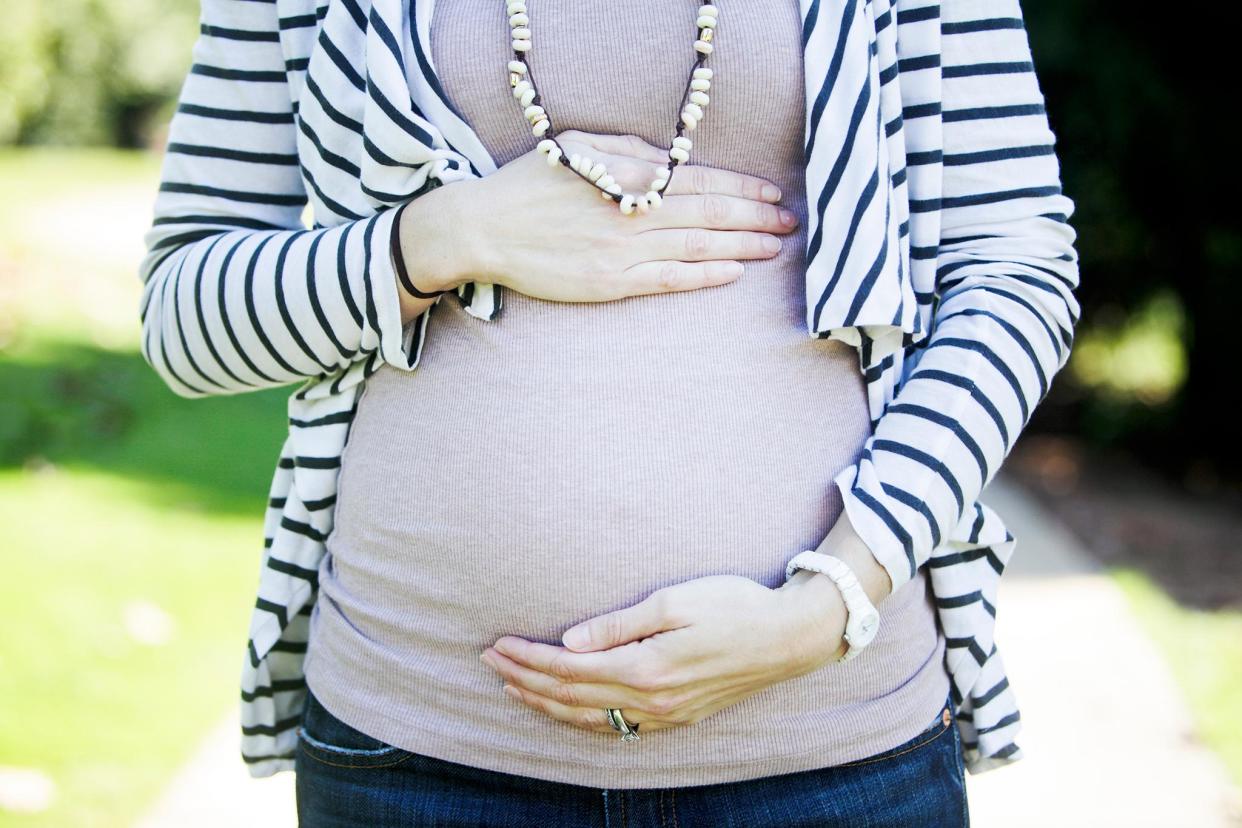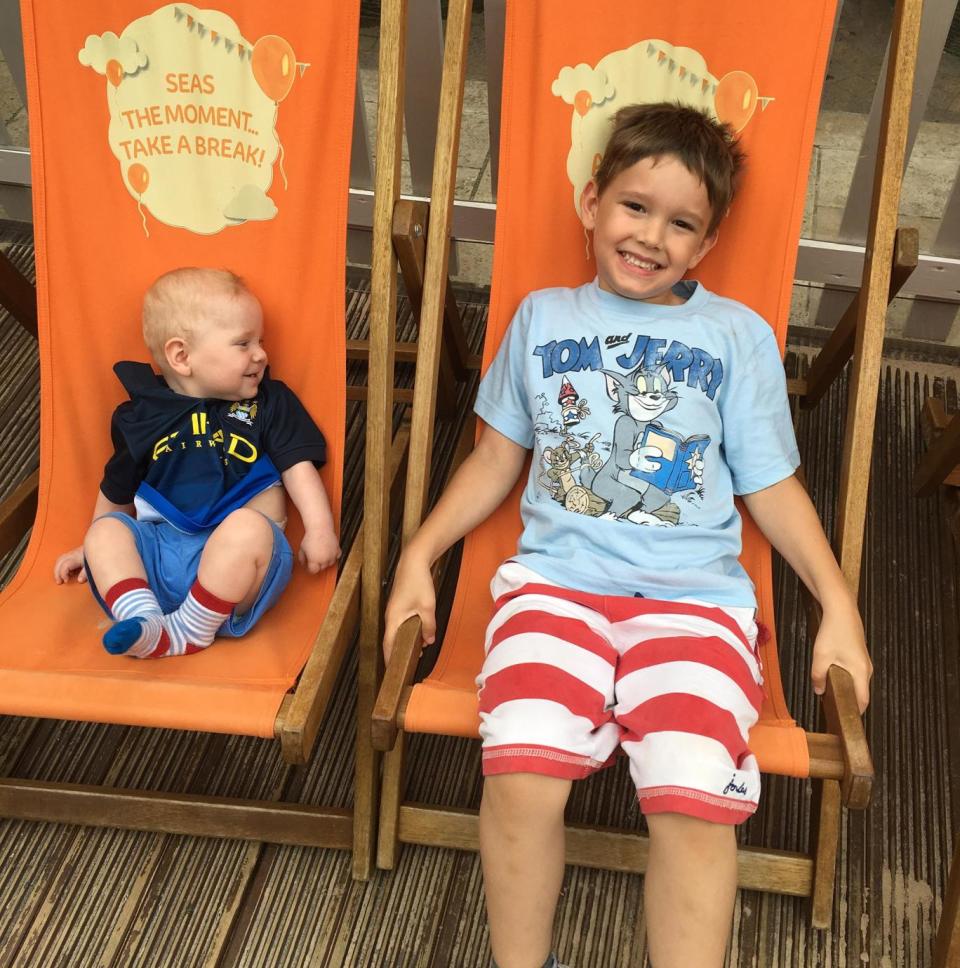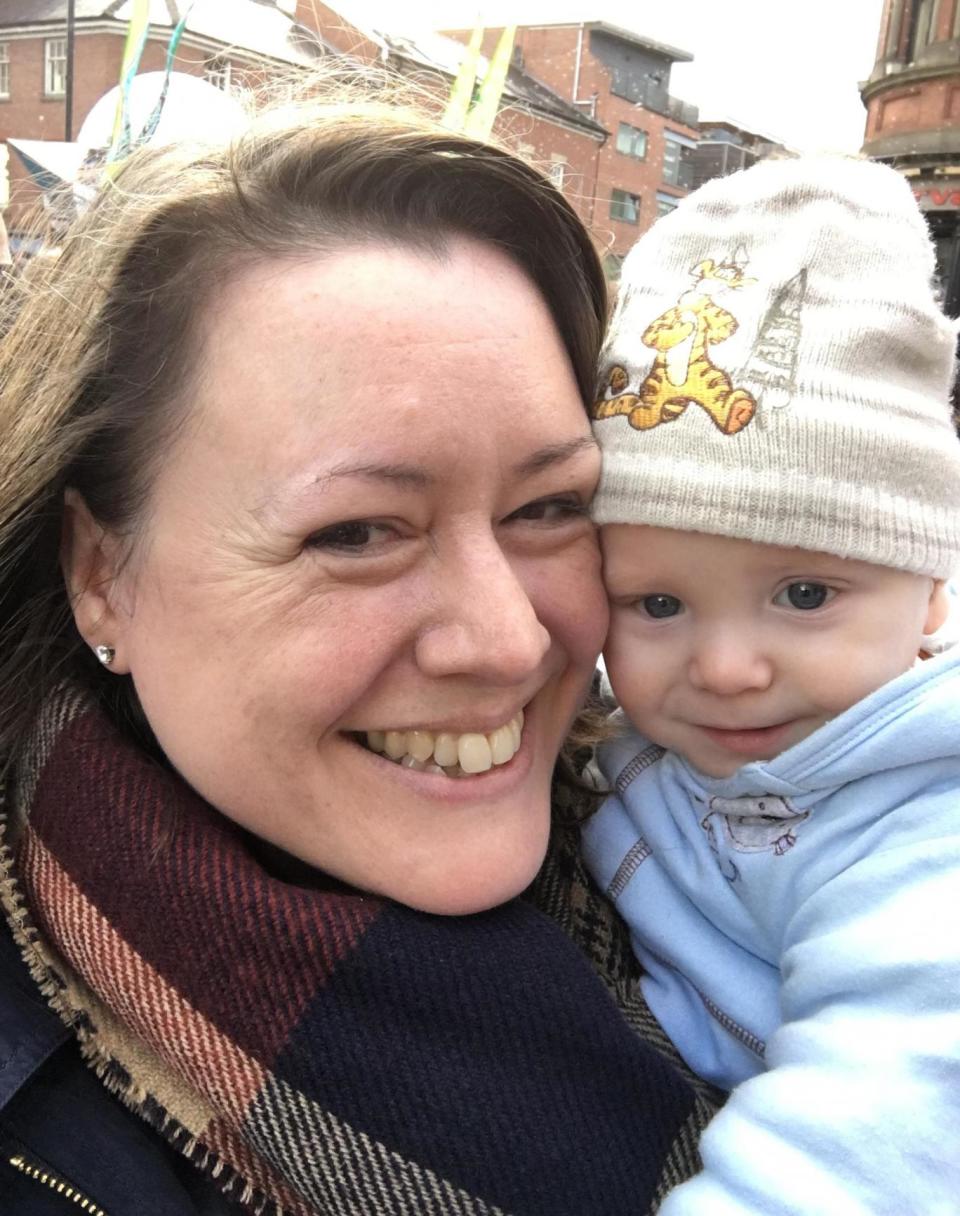What it is like to go through a late-term miscarriage

Legally, it is as though the baby never existed.
Late-term miscarriages - in the second trimester, and before the 24 week mark - are one of the most heart-rending experiences a pregnant woman can endure.
While most miscarriages occur in the first trimester when the foetus is less than a couple of inches big, the words "late-term miscarriage" don't quite capture the gravity of the upset.
The woman has to undergo the labour process and once delivered the baby can be buried but, despite this, the law does not recognise it as having existed: No birth certificate, no official record of life.
If a baby dies after 24 weeks, it is called a ‘stillbirth’ because the baby has reached the legal age of viability (the period where a baby is deemed capable of surviving outside of the womb) and its status changes.
One woman opened up to The Independent about the emotional turmoil a late-term miscarriage caused and the difficulty of coping with the legal status of her dead babies.
Rachel Corry, a psychologist from Sale in Greater Manchester, lost twin boys at 23 ½ weeks in a late-term miscarriage. Already a mother of one to 3 ½ year old Adam – who was born overdue without any complications – Rachel and her partner Steve Wilson discovered (surprisingly) that she was pregnant with twins after having an early miscarriage a couple of months before.
Though the 20 week scan showed all was fine and revealed the sex of the twins, at 22 weeks and three days she noticed spotting. Doctors discovered her cervix was opening and that she could go into labour at any time, she was scanned and they determined the babies would probably not survive.
Rachel, 42, delivered the first twin on 22 June 2013: “Even though it’s not what you want to be doing I was having to push him out, I had no contractions which was very difficult. I could still feel him moving around inside me right until the waters went just before he was born and then, of course, there was no movement at all, he could not survive outside of the waters,” she told The Independent.
Because Rachel was in labour before the 24-week mark, the neo-natal doctors said they would not be at the birth to intervene.
“I was on my own if you like (with the midwives), they didn’t have any confidence they would survive.”
The second baby was born two days later – where the neo-natal staff did stand by just in case as he was on the cusp of being born at the 23 week mark.
“This was really difficult because they were saying to me the first child wasn’t worth intervening for but the second one, if he makes it to the following day, they will be there just in case… I understand there is a cut off but when you have the same woman and the same pregnancy, it was really tough.”
The second twin was born on at 22 weeks and six days but “didn’t stand a chance either,” according to Rachel who says the babies looked “perfect and tiny” with heads the size of tennis balls.
“If we’d made it eight or nine days later it would have been a stillbirth and that’s really tricky… When you have delivered them they are your children but there is no legal recognition they ever existed. That’s really difficult.”
Rachel and Steve decided on a burial where they could get a stone engraved because then there would be a record of them.
“Legally they had never existed but if there was a stone with their names it felt like they did,” she says.
They had a funeral two weeks after their death just for she and her husband: “Planning a funeral is horrendous because you have no happy memories to discuss, it’s awful. You’re thinking about what would have been rather than what has been.”
If you don’t make it to 24 weeks, you don’t get any maternity pay. Some companies might provide sick pay but “it’s not like being ill and getting better. It is something that takes such a long time to get your head around. That’s without telling people or bumping into people in the street who ask how far you are getting on”.
Rachel and Steve had already started construction on an extension onto their home after deciding they needed to enlarge their home upon discovering they were having twins.
“We came home to a building site with no kitchen” Rachel says. “It felt like it was all for nothing.”
Given the perceived safety in waiting until after the 12-week mark to tell people and start preparing, and given Rachel’s experience of a relatively straightforward pregnancy with Adam, she told her friends and employer, bought clothes and even a pram for the anticipation of the twins, like most expectant parents would have.

“You come home [from the hospital] and your faced with all those things,” Rachel says. “I think it took us 18 months to get rid of the pram just because I couldn’t bring myself to get rid of it. Also, I think I hoped that we would get pregnant again with another baby and I think in my mind I thought ‘it can only be twins because that’s the fair thing’.”
After the babies died, Rachel had another two early miscarriages which is when she finally got rid of the pram.
“I held it together for a week, then various people came round – whether we wanted them to or not – and then I hit rock bottom. I felt like I wanted to die.” Rachel took herself to the doctor where she was prescribed some medication. “That was the lowest I got,” she says.
“I don’t think I ever thought ‘why me?’ because why not me?” she says.
Throughout her grief, Rachel experienced “deep sadness” at seeing heavily pregnant women which she describes as a form of jealousy after she never made it that far along as well as starting noticing twins everywhere she went. Another side of the cruel grieving process left Rachel feeling guilty, firstly about initially being shocked and anxious when learning she was carrying twins and then questioning whether she did something to blame for the miscarriage.
“I was also racking my brains thinking ‘What did I do wrong that caused them to come early?’ The day before I went for a walk and I think did that cause a problem?’ The things that go through your mind of what could I do to prevent it?’”
Rachel’s doctors never found a reason as to why the twins did not survive. There can be many reasons for a later term miscarriage including chromosomal or genetic issues, structural problems, infections, blood clots or underlying health issues but as with all miscarriages and stillbirths there is sometimes just no explanation, according to the charity Tommy’s which funds research into pregnancy problems.
To help deal with the grief, Rachel and Steve attended support groups and also made a commitment to talk about her grief “whenever possible” which she says helps.
“I feel like I’m doing [the twins] a disservice if I don’t mention them,” she reflects.
It was lucky Rachel and Steve could access these support groups. A spokesperson for Tommys told The Independent late miscarriages are often not well supported.
“I think late miscarriage is perhaps not well supported. Until the 24 week deadline the foetus/baby is not eligible for a birth certificate and this can have a big effect on parents. Sometimes the hospital will issue a certificate but it is not a legal document. Funeral arrangements will be discussed but of course this can be very difficult.
“Emotional and physical recovery can take time. By this, I mean many weeks or months and in our society after the initial event parents can be left with very few places to go for support. Very often there are no answers and this can increase the distress.”

In 2014, Rachel fell pregnant once more. Closely monitored throughout her pregnancy at Withenshaw hospital, at 21 weeks she was admitted to hospital when it looked like her cervix could open again. Resting on a downward bed to “keep gravity on our side”, she spent four weeks on the ward before giving birth to their son Hugo at 24 weeks and six days. He was admitted to the neo-natal unit at St Mary’s hospital in Manchester, where he stayed for seven months and underwent heart and bowel surgery, before they could take him home. He is now a healthy and happy 18-month-old boy.
While seeing your young baby wired up on a neo-natal unit for such a long time is difficult for any parent. Rachel says that being acutely aware of “what the alternative was”, she was not as traumatised by Hugo's ordeal as one might expect.
“The other two never made it that far so I thought, ‘well as long as he’s here’. That was my perspective,” she says.
Each year Rachel’s family commemorate the twin's birthdays by organising an activity or trip away. When people ask how many children she has, she says four.
“I say, ‘I have a little boy who is six and a half, we had twins who died and then we have Hugo.' That is the way I deal with it… it feels wrong to deny them.”
Tommy's provides advice and treatment through their clinics, website and publications. Women can call the free PregnancyLine on 0800 0147 800 which is open Monday to Friday, 9am - 5pm. https://www.tommys.org/


